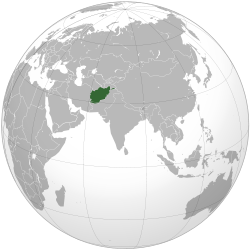Afghanistan Elections: Will The Taliban Contest? – Analysis
By IPCS
By J Jeganaathan
On 31 October 2012, the Independent Election Commission (IEC) of Afghanistan announced the timeline for Presidential and Provincial Councils Elections, which is scheduled to take place in April 2014. While releasing the Election Calendar during a press conference in Kabul, Fazil Ahmad Manawi, the head of the IEC said, “we are even prepared to pave the ground for the armed opposition, be it the Taliban or Hezb-i-Islami, to participate in the election either as voters or candidates…there will be no discrimination”.

This is an open invitation to Taliban and other armed insurgents to take part in the elections. In this context, the electoral process of Afghanistan that was kicked-off recently assumes significance from a national reconciliation perspective. But, the moot question is, will Taliban contest in the election or even support it?
The Significance of the 2014 Elections
It is widely believed that the 2014 elections are crucial for the peace and stability of Afghanistan as the country is set for political, economic and security transitions. Politically, the country is preparing to embrace a new leadership since incumbent President, Karzai, is constitutionally barred from running in the 2014 elections.
Moreover, international forces deployed in the region, have decided to hand over security responsibilities to Afghan forces and therefore, the new government will confront the security transition, as well. The country will also undergo an economic transition from aid economy to independent self-sustained economy. Nevertheless, the prospects for peace and stability will be dismal unless there is a fair and square political transition.
What does the Taliban Say?
So far, there is no official reaction from the Taliban regarding the proposed election schedule. However, the official website of Islamic Emirates of Afghanistan, Shahmat, questioned the elections as being “new attempts to justify the invasion”. It decreed that “the Islamic Emirate of Afghanistan anticipates the solution of the Afghan predicament in the full freedom and not through a false and fake election”. This indicates their penchant for a free and fair election without foreign interference.
Moreover, one cannot rule out any possibility of such a scenario, given the new circumstances that emerged especially after Osama’s death, in which the Taliban appeared reformed and matured. A clear example of this was the releasing of the third Layeha, the Taliban’s Code of Conduct, issued by Mullah Omar, which prohibits attacking civilians and looting. This reflects the Taliban’s professional public relations strategy and growing political maturity in their leadership.
According to the Royal United Service Institute’s report, which is based on interviews with Taliban interlocutors, the Taliban’s liaison with the Pakistani army or the ISI as well as the al Qaeda, is waning. It can also be inferred that the Taliban’s leadership is divided into two camps: idealist and pragmatist. The pragmatists are willing to negotiate their radical ideology for a legitimate political space in the Afghan polity. But, they are strongly averse to any external interference in determining or dictating their political future and also disapprove of the present government as being a “stooge”.
The idealists are often termed as radicals who are marginal, carry the baggage of past glory and remain determined to carry forward their Jihad. This polarisation was very much perceptible in the Taliban’s response to the West’s proposal for peace talks or negotiations as well as in their replies to any reconciliatory efforts initiated by the government.
It is quite obvious to the Taliban that the international forces will duly withdraw their combat missions by 2014 and that President Karzai will no longer be in the picture. Unlike the incumbent, the new leadership will enjoy relative independence and autonomy in governing the country. It is also unviable for the Taliban to mobilise a nationwide armed insurgency against the government for two simple reasons: feeble external support and sympathy, and, popular domestic discontent over their political and ideological disposition. In fact, the Taliban’s external support – both monetary and material – has been deteriorating. The Taliban’s leadership is now in a position to reform themselves, as well as their political strategies, in accordance with the lessons they have presumably learned over the last decade.
Ballots for Bullets
Nevertheless, it is quite difficult to gauge which of the two factions of the Taliban hold more say since they are loosely organised and physically scattered. One may not be sure whether the Taliban would contest or participate in the elections but it is beyond doubt that they will surely explore all suitable options to come back to power. In light of this, perhaps the best way to realise their political goals would be through ballots rather than bullets. In fact, this option is most viable for the Taliban merely because of demographic reasons since ethnic Pashtuns remain a majority in the country, accounting for 42% of the total Afghan population.
Therefore, if the Taliban decides to contest or field their candidates, then they will definitely dominate the outcome of the elections. This would, however, entail some ideological compromises and organisational revamping on the part of the Taliban leadership. It seems that they have politically matured now and are aware of their tactical constraints as well as strategic restraints. In short, the Taliban is now in survival mode – both in ideological and operational terms. However, this would highly depend upon the IEC’s efforts to ensure a free and fair election, which includes the equitable treatment of electors, candidates and parties by election officials, the government, the police, the military and the judiciary. The proposed elections could create a win-win situation for both the Taliban and mainstream Afghans, if it is orchestrated well.
J Jeganaathan
Research Fellow, IReS, IPCS
E-mail: [email protected]
